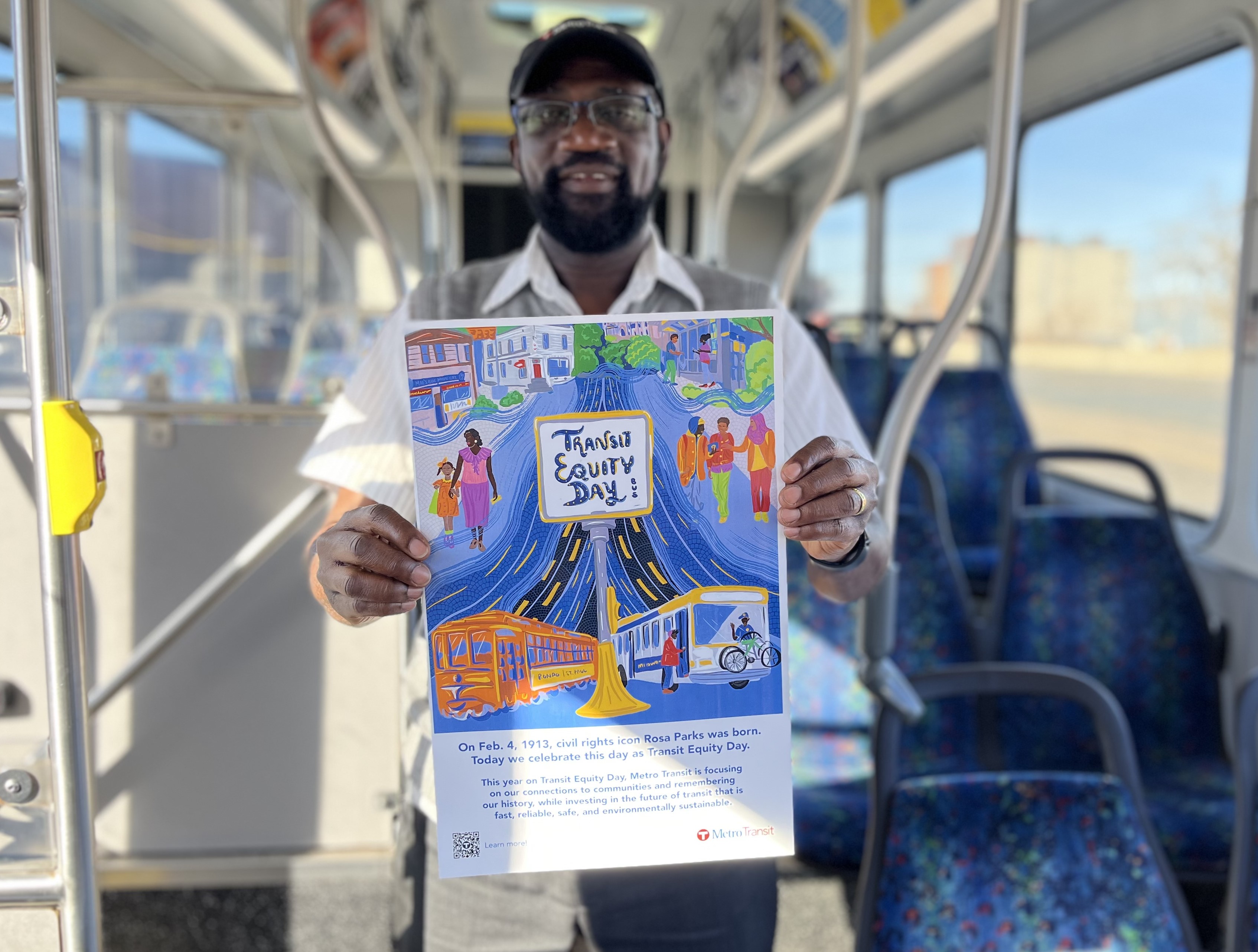Equity in action

Transit Equity Day (Sunday, Feb. 4) is a day to commemorate civil rights icon Rosa Parks, to celebrate the work that's been done to become a more equitable service provider and employer, and to commit ourselves to continuing this work in the future.
On Dec. 1, 1955, Rosa Parks refused to give up her seat, which led to the Montgomery Bus Boycott that began the modern Civil Rights Movement. She is not the only brave individual who resisted against inequities in the public transit system. In that same year Claudette Colvin, Aurelia Browder, and Mary Louise Smith were all arrested and charged for refusing to give up their seat.
To honor this legacy, we will be reserving seats throughout the day and reflecting on the progress we’ve made and the work we have left to do.
Watch: 65 years after Rosa Parks arrest, operator reads and reflects
Equity Statement
Metro Transit's adopted Transit Equity statement, drafted by our Equity & Inclusion Team and informed by feedback from employees across the organization, guides the steps we're taking to be more equitable and inclusive. It reads:
Metro Transit acknowledges that providing safe, affordable, and reliable transportation increases opportunity. Transit services and programs should be built to equitably benefit all, especially under-served communities, including BIPOC, low-wealth, women, people with disabilities, LGBTQ, youth and older adults. Transit equity requires identifying and addressing injustices and building actionable pathways to create a fair and more just future.
Metro Transit understands that transit decisions can impact the ability of under-served communities to find and keep jobs, reach medical care, access educational opportunities and affordable housing, and develop and maintain social connections, among other impacts. Transit services and investments can reduce spatial inequalities that contribute to racial, environmental, and economic disparities.
Metro Transit has an essential role and responsibility to examine all decisions impacting our region’s access to quality transit, reduce existing disparities, and prevent further inequities by:
-
Reviewing and revising policies
-
Seeking partnerships with other responsible institutions; and
-
Improving planning and operational practices
Key Definitions
Under-served communities: Local communities that have been historically excluded from transit decision-making and benefits while carrying disproportionate burdens.*
BIPOC: Black, Indigenous and People of Color.
Disability: Includes people with physical, sensory, emotional, and cognitive disabilities, and those with chronic/severe illness. We understand the experience of disability to occur within any and all walks of life, with deeply felt connections to all communities impacted. (adapted from Sins Invalid Organization’s mission)
Inequities: When a group or an area is serviced, represented, and/or invested greater than another group or area based on access, power, and/or privilege.
Spatial inequalities: The unequal amount of resources and services that can be accessed depending on the area or geographical location.
*MnDOT: Advancing Transportation Equity Initiative focuses on communities: (1) Underrepresented in transportation processes; (2) Experiencing known inequities in access or outcomes; (3) With unique transportation needs not well served by a business-as-usual approach
For more information on Metro Transit’s equity initiatives, see metrotransit.org/Equity